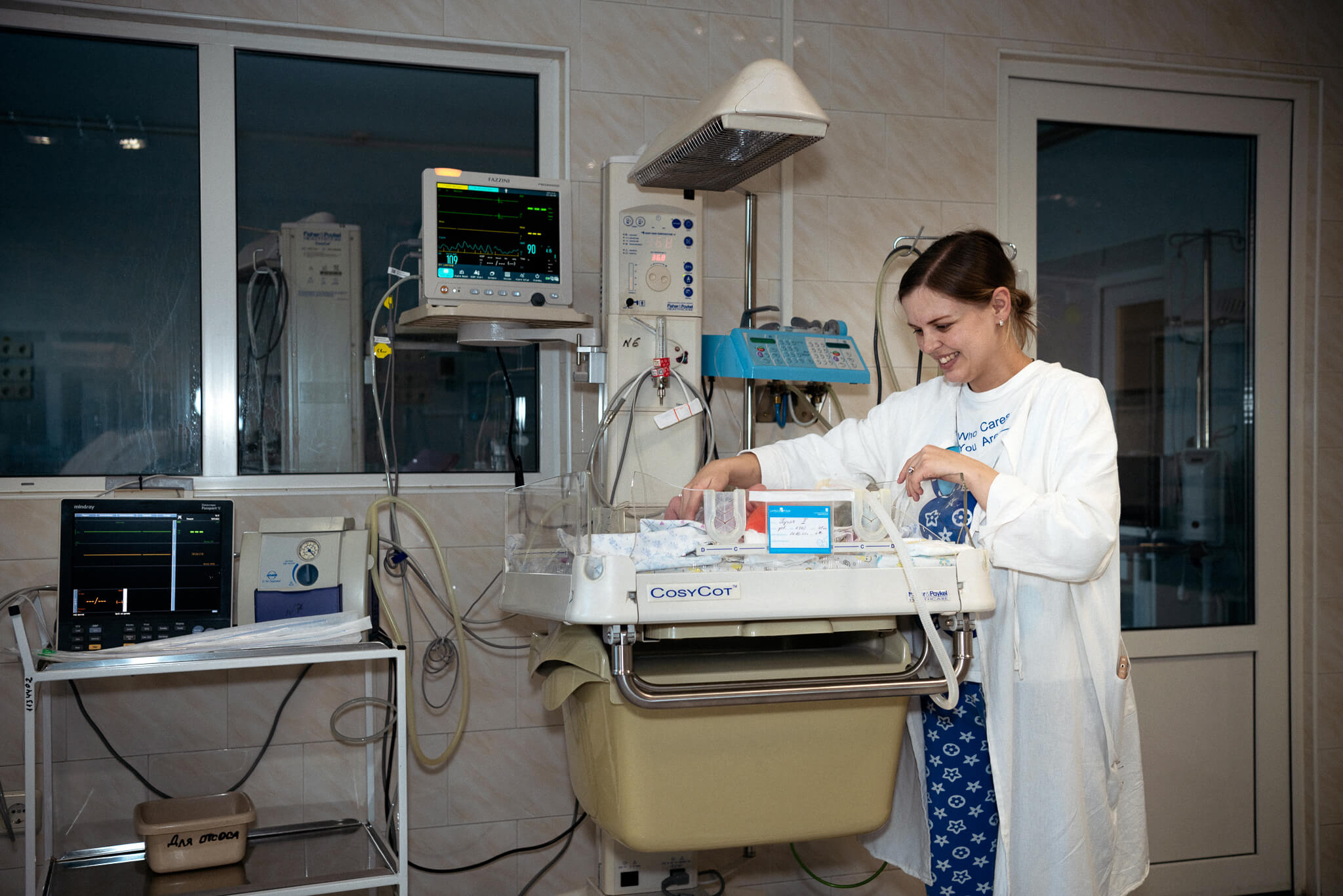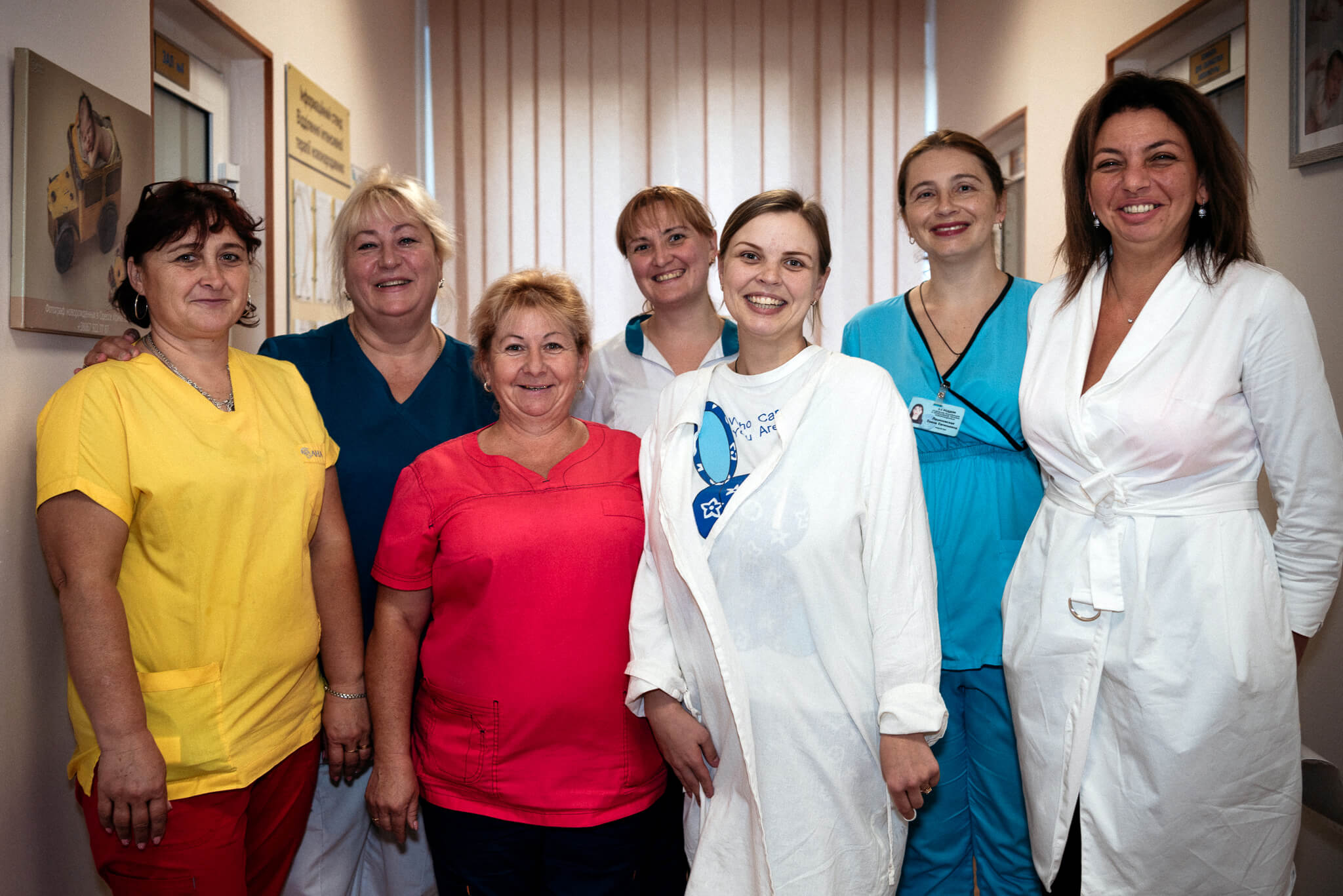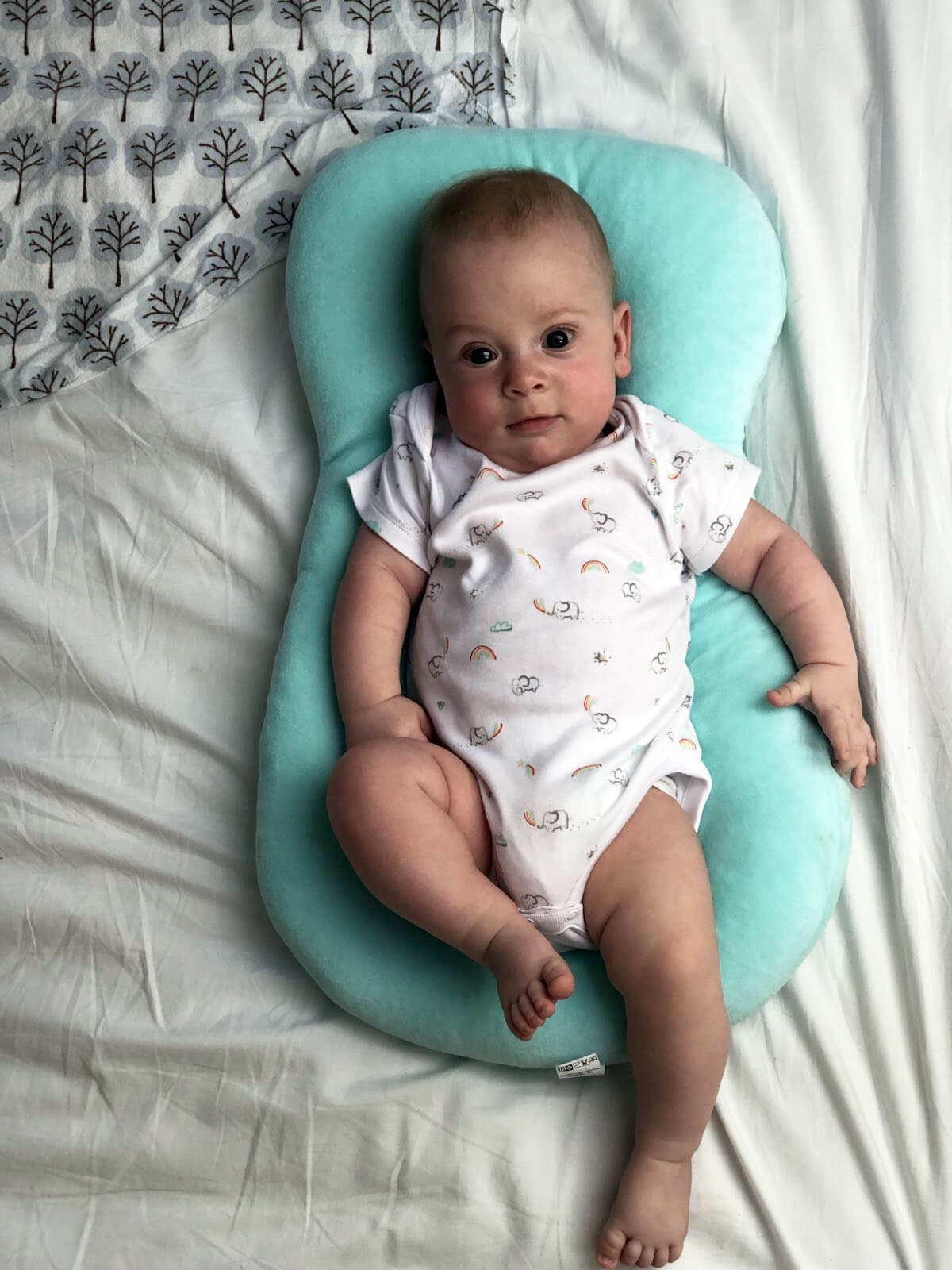People in Odesa nowadays are used to unpleasant sounds: the warning of an air siren, the boom of an explosion, the wail of an ambulance. But there is a welcome sound in Odesa, and it can be found in the maternity hospital: the sound of a baby’s first cry.
A cry of hope—a new beginning, full of innocence. Born in war, a time of such loss, yet marking new life in Ukraine.
As the war continues, Odesa—a large port city in the south—has become home to many families fleeing the fighting farther to the east. As in many other regions, healthcare facilities in Odesa have been targeted by Russia. Hospitals, ambulances and supplies have been destroyed, putting immense pressure on the facilities that remain.
There are six maternity hospitals in the city. As a place to care for women, mothers and children, it is unsurprising that they are not equipped for the harsh realities of war. Only one hospital has a bomb shelter: Maternity Hospital No. 5, which we have supported since the start of the war. Many mothers have given birth here, each with a different story, history and future. In July alone, there were 167 deliveries. We can’t share all the stories—but for now, here are the stories of Iryna and Olena.
Iryna’s Story
Iryna Puhach is originally from Kharkiv in northeast Ukraine. She moved to Odesa last year and was pregnant with triplets when the Russians invaded Ukraine in February 2022. After she developed complications, she was admitted to Maternity Hospital No. 5, which is set up to handle the most difficult maternal cases. Though Iryna went into premature labor at 31 weeks, with the support of the medical staff, the triplets were delivered safely.

Because the babies were premature, they needed some help breathing and feeding. Luckily, we had provided the hospital with modern warming tables, which are equipped with phototherapy devices for newborns, scales and ECG machines. This equipment ensured that her babies could be nursed to health.
Today, babies in Ukraine are not just a celebration of new life for the parents. They also offer hope for the staff, who continue to work under challenging and dangerous circumstances. “We are proud to be able to help a young woman give birth safely in our hospital, and we are happy that the mother and babies are healthy,” smiles Yurii Smachilo, Medical Officer.

Olena’s Story
Olena Leokavicius is a mother of three. When the invasion occurred, she was already expecting her fourth. The daily attacks, deaths, fear and feelings of helplessness caused Olena to feel a huge amount of stress and, as a result, she went into premature labor at just 27 weeks.
Her family brought her to Maternity Hospital No. 5, where the medical team discovered that Olena’s placenta had detached, cutting off the baby’s oxygen supply. Springing into action, the doctors performed a lifesaving emergency caesarean section. Her new son, Andrius, weighed only 1.3kg (just a bit more than a small bag of sugar) and was struggling to breathe on his own. The modern equipment that we had supplied for the hospital’s neonatal intensive-care unit (NICU) meant the doctors could stabilize Andrius’ vital functions. They admitted him for a month to the NICU, where his weight steadily increased and he started to breathe on his own. Looking at the photo below, it is hard to believe Andrius had the beginning he did.

“We are grateful to International Medical Corps for providing the lifesaving equipment to the hospital, which helped the doctors support our child in the critical early days of his life,” says Olena.
Many women around Ukraine do not have the chance to give birth safely in a maternity hospital surrounded by an expert medical team. Many give birth in bunkers and bomb shelters—alone and afraid.
This is just one reason why mental health services in Ukraine and in neighboring countries have never been so important. In addition to medical care, supplies and equipment, we provide mental health counseling, training and individual emotional and psychosocial support sessions around the country. And in our mother-and-baby safe spaces, we share resources and information about breastfeeding, nutrition and birth. Of course, we continue to support healthcare facilities with training, supplies and equipment, meaning that Ukrainian clinicians can continue their lifesaving work.
As the war continues, so does life. Children will continue being born and, with your support, we will be there for as long as it takes to support them, their mothers and their doctors. Every donation means that more children will have the chance to be born safely, surrounded by medical teams who have the training, supplies and equipment they need.
